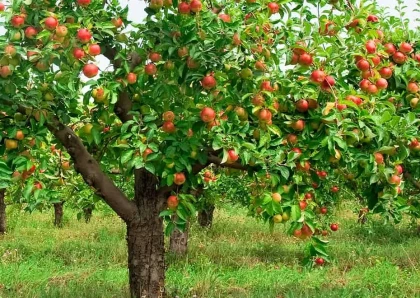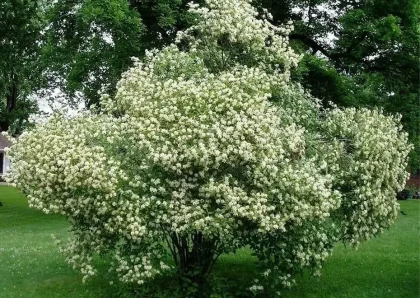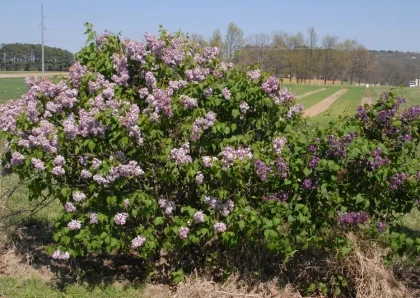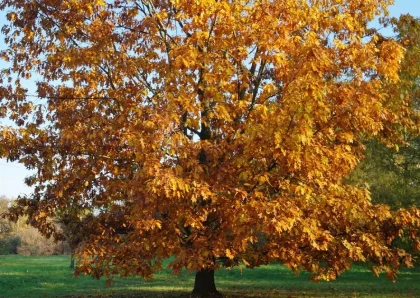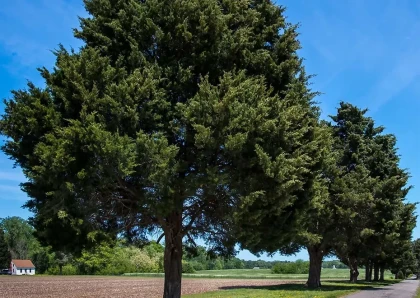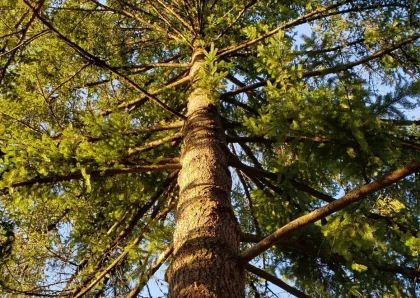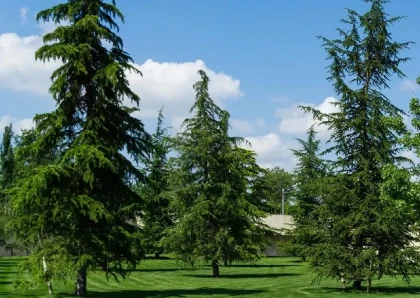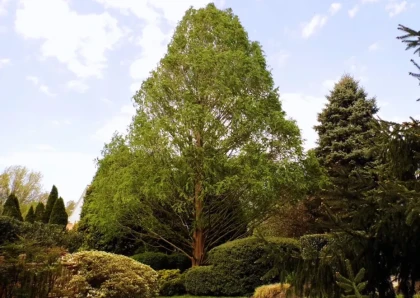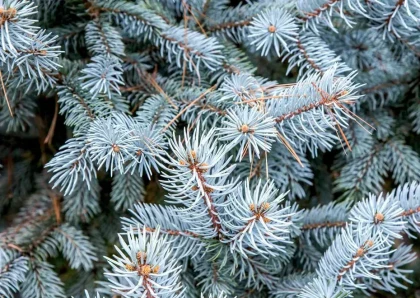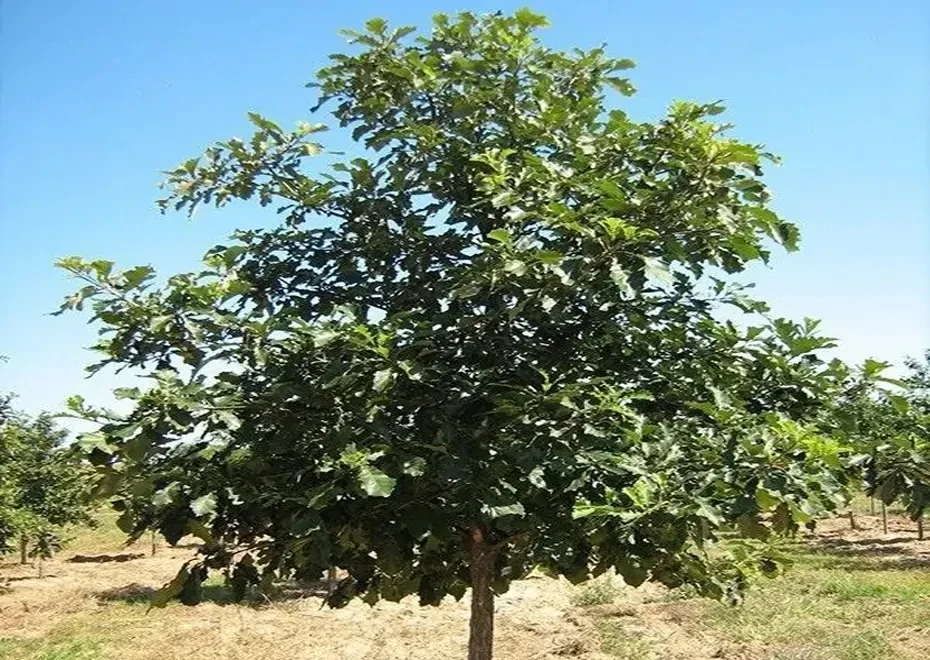
Swamp White Oak
Overview
Swamp White Oak, scientifically known as Quercus bicolor, is a medium to large-sized deciduous tree native to North America. Part of the white oak group, this species gets its name from its preference for wet, swampy soils, although it can thrive in various conditions. It is highly valued for its versatility, adaptability, and impressive autumn colors. Swamp White Oak trees can grow up to 70 feet tall and have a spread of up to 50 feet. They are tolerant of a variety of conditions, including heat, drought, and poor soil.
Different types of wood products can be made from Swamp White Oak Tree
Swamp White Oak wood is a strong and durable wood that can be used for a variety of purposes, including:
- Furniture: The strength and durability of Swamp White Oak wood make it an excellent choice for creating various furniture pieces, including tables, chairs, and cabinets.
- Flooring: Swamp White Oak wood is often used in flooring due to its resistance to wear, providing a long-lasting and visually appealing option for residential and commercial settings.
- Cabinets: The wood's resistance to warping and shrinking, along with its attractive grain patterns, makes it a preferred choice for crafting cabinets.
- Barrels: The wood's impermeability and unique flavor imparting characteristics make it popular in the production of barrels, especially for wine and whiskey.
- Veneer: Due to its attractive grain and color, Swamp White Oak wood is also sliced to produce veneers for paneling, doors, and other decorative applications.
- Outdoor applications: The wood's resistance to rot and decay is valuable for outdoor use, including fences, decks, and landscaping features.
Benefits of Swamp White Oak Tree
- Beautiful fall foliage: Swamp White Oak trees are known for their beautiful fall foliage, which can range in color from yellow, orange, and red.
- Tolerate a variety of conditions: Swamp White Oak trees are tolerant of a variety of conditions, including heat, drought, and poor soil.
- Long-lived: Swamp White Oak trees can live for hundreds of years.
- Provides food and shelter for wildlife The acorns of Swamp White Oak trees are a popular food source for wildlife, and the tree's dense foliage provides shelter from the elements.
Cons of Swamp White Oak
- Slow growth: The Swamp White Oak is a slow-growing tree that may take time to establish.
- Large size Its size can be an issue in smaller landscapes or near buildings.
Planting Tips
- Location: Choose a location with full sun to partial shade. The tree can adapt to a variety of light conditions, but it thrives best with plenty of sunlight.
- Soil: While Swamp White Oak can tolerate various soil types, it prefers well-drained soils. It's highly tolerant of wet, swampy conditions, making it suitable for areas with poor drainage.
- Spacing: Since Swamp White Oak can grow to a large size, ensure adequate space for its canopy to spread. Plant the tree at least 20-30 feet away from buildings or other large structures.
Maintenance Tips
- Watering: Water regularly during the first few years after planting, particularly during dry periods. Once established, the tree has some drought tolerance but prefers consistent moisture.
- Pruning: Perform any necessary pruning in late winter or early spring when the tree is dormant. Remove any dead, diseased, or crossing branches to maintain the tree's health and shape.
- Mulching: Apply a layer of organic mulch around the base of the tree (without touching the trunk) to help conserve moisture, regulate soil temperature, and suppress weeds.
- Monitoring: Regularly inspect the tree for signs of pests or diseases. Promptly address any issues to prevent potential damage.
Conclusion
Swamp White Oak trees are beautiful and long-lived trees that can add value to any property. They are tolerant of a variety of conditions, but they can grow very large, which can make them unsuitable for small properties. Swamp White Oak trees are also susceptible to a few pests and diseases, so it is important to inspect them regularly and treat any problems promptly.
FAQs
- Does Swamp White Oak need a lot of water?
- How big does Swamp White Oak get?
- Can it grow in the city?
While it's adapted to wet soils, it's also tolerant of occasional drought once established.
It can reach up to 60 feet in height and width.
Yes, Swamp White Oak has excellent tolerance to urban pollution, making it suitable for city planting.
No listings available
Related Products
Golden Jubilee Peach Tree
Prunus persica 'Golden Jubilee' is a specific cultivar of peach tree. It is a deciduous fruit tree belonging to the Rosaceae family. 'Golden Jubilee'...
Gray Dogwood
Cornus racemosa, commonly known as the gray dogwood or northern swamp dogwood, is a deciduous shrub native to eastern North America. It belongs to...
Common Fragrant Lilac
Syringa vulgaris, commonly known as the Common Lilac or French Lilac, is a deciduous shrub belonging to the genus Syringa in the olive family...
European Beech Tree
The European Beech (Fagus sylvatica) is a deciduous tree species native to much of Europe, including parts of western Asia. It is one of...
Emerald Arborvitae Tree
The Emerald Arborvitae (Thuja occidentalis 'Smaragd') is a popular evergreen tree or shrub in landscaping and gardening. It belongs to the cypress family (Cupressaceae)...
Eastern Red Cedar Tree
The Eastern Red Cedar, scientifically known as Juniperus virginiana, is a species of evergreen tree native to eastern North America. It belongs to the...
Douglas Fir Tree
The Douglas Fir (Pseudotsuga menziesii) is an evergreen coniferous tree that belongs to the Pinaceae family. It is one of the most common and...
Deodar Cedar Tree
The name "Deodar" is derived from the Sanskrit words "deva" (meaning "god") and "daru" (meaning "wood" or "tree"), hence it is often referred to...
Dawn Redwood Tree
The Dawn Redwood tree, scientifically known as Metasequoia glyptostroboides, is a deciduous coniferous tree that belongs to the family Cupressaceae. It is a unique...
Colorado Blue Spruce Tree
The Colorado Blue Spruce, scientifically known as Picea pungens, is a species of coniferous tree belonging to the Pinaceae family. It is native to...
Questions & Answers
What do you want to know about this product?
Reviews (5)
ArborAce23
Stately and Robust
Planting this oak was the best decision. Its growth is impressive and it's adapted well to our wet soils. Beautiful shade tree!
LeafWhisperer
Mighty Swamp White Oak
Thrives in our backyard. Its large, lobed leaves create great shade in the summer, and it seems to be quite hardy and disease-resistant.
GreenThumbGenius
Versatile and Vibrant
The Swamp White Oak has been a joy to watch grow. It's flourished in partial shade and its fall color is stunning.
BarkMaster
Unbeatable Resilience
Very resistant to pests and harsh weather. A survivor in its own right, this oak has become the pride of our garden.
RootGuru
Impressive and Enduring
The Swamp White Oak adds timeless beauty to our landscape. Its durability and adaptability make it a must-have for any tree lover.




